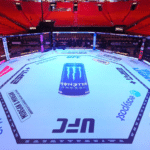Fight IQ is a crucial concept in combat sports. It refers to a fighter’s mental ability to understand and adapt during fights. This includes making smart decisions, recognizing patterns, and adjusting strategies on the fly.
In this article, we will explore what Fight IQ is, why it matters, and how you can improve yours.
Critical Thinking for Critical Outcomes

Critical thinking in fights is essential for achieving good outcomes. Fighters often face unexpected situations. Those who can think critically make better decisions. They assess what is happening in real time and react accordingly. This skill can be the difference between winning and losing.
Critical thinking allows fighters to analyze their opponents’ moves. They can predict what the opponent might do next. This foresight helps them to develop a combat sports strategy that is effective.
For example, if a fighter knows their opponent tends to throw a certain punch, they can prepare to counter it effectively.
Importance of Critical Thinking in Fights
Fighters need to evaluate their options quickly. In a match, a split-second decision can change the fight’s outcome. Effective critical thinking leads to:
- Better decision-making: Making choices that increase the chances of winning.
- Increased adaptability: Changing strategies in response to an opponent’s actions.
- Enhanced pattern recognition: Identifying trends in an opponent’s behavior to exploit weaknesses.
The importance of critical thinking extends beyond just fight preparation. It also plays a role in post-fight analysis. Fighters who can think critically about their performance will learn from their experiences. They can pinpoint mistakes and areas for improvement, making them better for future fights.
Practical Examples of Critical Thinking in Combat Sports
To illustrate the importance of critical thinking in fights, consider the following scenarios:
- Adapting to a Tough Opponent: A fighter faces an opponent known for their strong grappling. Instead of sticking to their usual striking strategy, they switch to a more defensive approach, focusing on takedown defense. This critical assessment helps them stay competitive in the match.
- Reacting to Injuries: During a fight, a fighter sustains an unexpected injury. A strong Fight IQ allows them to adjust their game plan quickly, emphasizing techniques that minimize stress on the injured area.
By training critical thinking skills, fighters can enhance their performance and increase their chances of victory.
Understanding Fight IQ

Fight IQ is more than just physical ability. It combines mental toughness, anticipation, and tactical planning. Fighters with high Fight IQ can read their opponents and the fight environment. They understand the strengths and weaknesses of their opponents. This knowledge helps them create a fight strategy formulation that is effective.
In addition, pattern recognition in combat sports plays a vital role in Fight IQ. Successful fighters notice patterns in their opponents’ behavior. They recognize trends and exploit them to gain an advantage. A fighter who can analyze opponents’ moves will have a strategic edge.
Components of Fight IQ
To better understand Fight IQ, let’s break down its components:
- Mental Toughness: The ability to stay focused and composed under pressure. Fighters with mental toughness can withstand the stress of a match and maintain their performance level.
- Anticipation: The skill of predicting an opponent’s actions. Fighters who can anticipate well can react quicker and execute counter-strategies effectively.
- Tactical Planning: Developing a plan based on the opponent’s style and fight dynamics. A well-thought-out tactical plan provides a roadmap for victory.
- Adaptability: The ability to adjust strategies in real time. Combat situations are dynamic; fighters must change their tactics as needed.
- Pattern Recognition: The skill of identifying trends in opponents’ movements. Recognizing these patterns allows fighters to predict actions and respond accordingly.
These components work together to create a fighter with a high Fight IQ. Each component reinforces the others, leading to better performance in the ring.
The Role of Each Component in Fight IQ
Understanding how each component contributes to overall Fight IQ can help fighters enhance their skills:
- Mental Toughness: Helps fighters endure the mental and physical challenges of competition. It prevents them from panicking in high-pressure situations and allows them to think clearly.
- Anticipation: Allows fighters to preemptively respond to an opponent’s moves. Good anticipation leads to successful counter-attacks and defensive maneuvers.
- Tactical Planning: Helps fighters enter the ring with a clear strategy. It reduces confusion and allows them to focus on execution rather than improvisation.
- Adaptability: Essential for overcoming unexpected challenges in the ring. Fighters who can adapt quickly are less likely to be caught off guard.
- Pattern Recognition: Equips fighters with the ability to exploit weaknesses in their opponent’s strategy. Identifying patterns enables fighters to anticipate and counter effectively.
Overall, these components of Fight IQ form a holistic understanding of the sport. Each aspect is critical to achieving success.
Anticipation, Adaptability, and Strategy
Informed Anticipation
Informed anticipation is a key component of Fight IQ. It involves predicting an opponent’s next move based on previous actions. Fighters who anticipate well can counter-attack effectively. This requires a deep understanding of their opponent’s fighting style.

Anticipation in combat is crucial. A fighter must be aware of the various techniques and strategies an opponent might use. Those who excel in decision-making in fights can create openings and seize opportunities.
The Role of Informed Anticipation in Fights
Informed anticipation involves:
- Recognizing patterns: Understanding how an opponent typically behaves in certain situations.
- Studying fight footage: Analyzing past performances to predict future actions.
- Developing a mental database: Building knowledge of different fighters and their styles.
By honing these skills, fighters can improve their anticipation and decision-making abilities. A fighter who can anticipate an opponent’s actions is more likely to succeed.
Practical Applications of Informed Anticipation
Informed anticipation can be applied in various scenarios during a fight:
- Countering Attacks: A fighter anticipates an incoming strike and prepares a counter. For instance, if an opponent is known for throwing a right hook, a fighter may anticipate it and prepare to slip and respond with a straight punch.
- Creating Offense: Anticipating an opponent’s defensive reactions can lead to successful offensive strategies. If a fighter knows their opponent tends to cover up after a jab, they might follow up with a powerful kick to exploit that opening.
- Feints and Deception: Using feints to mislead an opponent can be an effective strategy. By recognizing an opponent’s expected reactions, a fighter can create opportunities for unexpected attacks.
Mid-Fight Adaptability
Mid-fight adaptability is another critical aspect of Fight IQ. Situations in the ring can change rapidly. A fighter must be able to adjust their strategy on the spot. This adaptability requires mental agility and quick thinking.
For instance, if a fighter notices their opponent is using a strong jab, they may need to change their approach. They could close the distance or change their stance. This type of tactical adaptation can make a significant difference in the outcome of the fight.
The Importance of Mid-Fight Adaptability
Mid-fight adaptability allows fighters to:
- Counter-opponent strategies: Adjusting tactics to counteract what the opponent is doing.
- Stay calm under pressure: Maintaining composure when the fight takes an unexpected turn.
- Identify new opportunities: Recognize when to seize an opening or change tactics.
Being adaptable not only enhances a fighter’s chances of winning but also showcases their skill level and experience in the ring.
Strategies for Enhancing Mid-Fight Adaptability
To improve mid-fight adaptability, fighters can:
- Engage in Sparring: Regular sparring sessions allow fighters to practice adapting to different styles and strategies in real-time. Sparring against various opponents exposes fighters to diverse tactics.
- Scenario Training: Coaches can create specific scenarios for fighters to practice. This prepares them for unexpected situations during a match.
- Mental Rehearsal: Visualizing potential fight scenarios helps fighters prepare mentally for adaptability. This practice can enhance their decision-making speed.
Strategy Formulation
Creating a strategy for a fight is essential. Fighters must formulate a game plan based on their strengths and their opponent’s weaknesses. This strategy should be flexible, allowing for adjustments during the fight.
Key elements of effective strategy formulation include:
- Understanding the opponent’s style: Knowing how an opponent typically fights helps in planning.
- Utilizing personal strengths: Fighters should play to their strengths while minimizing weaknesses.
- Adjusting tactics as needed: Strategies should evolve as the fight progresses.
Successful fighters are those who can formulate effective strategies before the fight and adapt them during the match.
Case Study: Effective Strategy Formulation
Consider the case of former UFC champion Amanda Nunes. Before her fights, Nunes and her team meticulously analyze opponents’ fight footage. They identify strengths and weaknesses, allowing her to develop a strategy that maximizes her chances of victory.
- Opponent Analysis: Nunes focuses on her opponent’s previous performances, noting patterns in their fighting style.
- Game Plan Development: Based on the analysis, Nunes crafts a game plan that utilizes her striking and grappling abilities.
- In-Fight Adjustments: During fights, Nunes displays exceptional adaptability, making adjustments to her strategy based on her opponent’s actions.
This strategic approach has contributed to her success as a champion and showcases the importance of effective fight strategy formulation.
The Role of Fight IQ in Combat Sports
The role of Fight IQ in combat sports is immense. It influences how fighters perform in the ring. Those with high Fight IQ tend to have better fight records. They make smart, strategic decisions that lead to victory.
For example, many successful fighters have demonstrated exceptional
Fight IQ. They can adapt to different opponents and situations. This ability sets them apart from their competition.
Analyzing Opponents’ Moves
Analyzing opponents’ moves is a critical part of developing Fight IQ. Fighters who can assess their opponent’s techniques gain valuable insights. This analysis helps in creating effective strategies.
Fighters often study their opponents’ past fights. They look for weaknesses or patterns that can be exploited. This preparation leads to more informed decision-making in the ring.
The Benefits of Analyzing Opponents
By analyzing opponents, fighters can:
- Identify weaknesses: Recognizing flaws in an opponent’s game allows fighters to exploit them during the match.
- Predict strategies: Understanding how an opponent typically approaches fights can lead to anticipating their next moves.
- Enhance confidence: Being well-prepared boosts a fighter’s confidence in their ability to execute a game plan.
Incorporating opponent analysis into training routines enhances overall Fight IQ and improves performance.
Developing a High Fight IQ
Training for Fight Intelligence
Improving Fight IQ requires focused training. Fighters should engage in activities that promote critical thinking and adaptability. This training includes:
- Sparring Sessions: Regular sparring helps fighters experience real-time adjustments and tactical thinking.
- Watching Fights: Observing professional fighters can provide insights into effective strategies and decision-making.
- Mind Games: Engaging in mental exercises, such as puzzles or strategic games, can enhance cognitive skills relevant to fighting.
Improving Reflexes and Reaction Time
Fighters need quick reflexes and fast reaction times. Improving these skills contributes to better fighting IQ. To enhance reflexes and reaction time, fighters can:
- Drill Reactions: Specific drills can help fighters react quickly to different situations. These drills often involve partners simulating attacks while the fighter practices defensive maneuvers.
- Use Equipment: Tools like reaction balls or agility ladders can improve hand-eye coordination and speed.
- Focus on Conditioning: Good physical conditioning contributes to quicker reflexes. Fighters should engage in exercises that build explosive power and speed.
Mental Toughness in Combat Sports
Mental toughness is a cornerstone of Fight IQ. It involves maintaining focus and composure under pressure. Fighters with high mental toughness can push through adversity during a match. They do not let fear or anxiety affect their performance.
To develop mental toughness, fighters can:
- Practice Visualization: Visualizing successful performances can boost confidence and prepare the mind for high-pressure situations.
- Set Goals: Setting achievable goals helps fighters focus on their progress. This practice builds a strong mental framework for overcoming challenges.
- Embrace Challenges: Taking on difficult training scenarios prepares fighters for the pressures of competition. Embracing discomfort helps build resilience.
Refining Fight IQ Through Experience
Experience plays a significant role in developing Fight IQ. As fighters compete, they learn valuable lessons from each match. This experience helps them refine their strategies and decision-making skills. Key areas of growth through experience include:
- Learning from Mistakes: Analyzing past performances allows fighters to identify areas for improvement.
- Adapting to New Situations: Every fight presents unique challenges. Experienced fighters learn to adapt and develop their Fight IQ.
- Gaining Insights: Competing against various opponents exposes fighters to different styles and tactics. This exposure broadens their understanding of combat sports strategy.
Coaching Fight IQ

The Role of Coaches
Coaches play a vital role in developing a fighter’s Fight IQ. They provide guidance and feedback that can enhance a fighter’s decision-making skills. Effective coaching focuses on the following areas:
- Teaching Strategy: Coaches help fighters develop game plans based on their strengths and opponents’ weaknesses.
- Providing Feedback: Constructive feedback during training sessions helps fighters improve their performance. Coaches can highlight areas for growth and reinforce effective strategies.
- Encouraging Critical Thinking: Coaches can challenge fighters to think critically about their techniques and decisions. This practice fosters a deeper understanding of combat sports.
Effective Coaching Strategies
To coach Fight IQ effectively, trainers can:
- Encourage Video Analysis: Reviewing fight footage together helps fighters recognize patterns and strategies.
- Conduct Tactical Discussions: Engaging fighters in discussions about different tactics enhances their understanding of combat strategy.
- Simulate Real Fight Scenarios: Creating scenarios during training allows fighters to practice decision-making and adaptability under pressure.
Through effective coaching, fighters can develop a high Fight IQ, leading to improved performance and greater success in the ring.
Conclusion
Fight IQ is an essential element of success in combat sports. It encompasses critical thinking, informed anticipation, adaptability, and strategic planning. By focusing on improving your Fight IQ, you enhance your chances of victory.
Developing a high Fight IQ takes time and dedication. Study fights, analyze opponents, engage in mental exercises, and seek feedback from experienced coaches. Through continual learning and practice, you can elevate your performance in the ring.
Ultimately, developing a high Fight IQ not only improves your skills as a fighter but also enriches your experience in the world of combat sports. Keep pushing your limits, and you’ll find that a sharp mind can lead to a sharper performance.

James Wesley is a passionate martial arts enthusiast and the voice behind Martial Aura. With a deep love for UFC and combat sports, he shares expert insights and in-depth analysis on everything from fight strategies to athlete profiles. When he’s not writing, you’ll find him training or watching the latest fights, always learning from the best in the ring.






